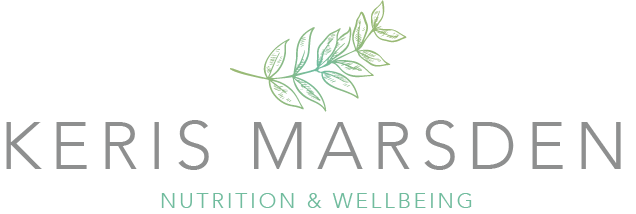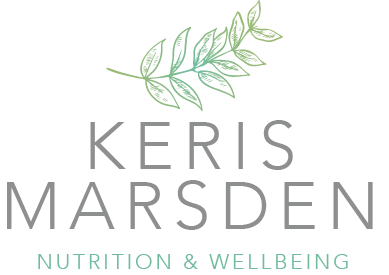Cardio nutrition essentials: part 2
In Cardio nutrition essentials: part 1 I covered what to eat and how much with macronutrient recommendations.
In this article I’ll be discussing meal frequency and providing some pre/post exercise nutrition guidance.
How often should you eat?
There’s no strong evidence supporting any particular meal frequency for exercise performance, around 3-6 meals will be suitable for most people.
Aim to establish what keeps your energy levels sustained, stabilises your appetite and is easy on your digestive system.
It’s important to keep a 3-hour gap in between each meal to support digestive processes and give your gut chance to clear a meal otherwise bloating, gas and reflux can become a problem.
Pre and post workout nutrition
Most people over think pre and post workout nutrition.
We store enough calories to run for 100,000 hours so you don’t technically need to eat before a session some people for eating and find they can up the intensity of a workout.
Pre-workout measures are all your nutrition and training activity over the previous weeks leading up to a session.
The post workout window has also been over egged with the notion of a specific window, usually the hour after you finish exercising.
In fact, everything you consume that day after a training session is technically post workout nutrition.
Whilst tweaking what you do before and after exercise can be helpful, the benefits are really gained in meeting your daily macronutrient targets (protein, carbs and fat), staying hydrated and ensuring your macros are packed with micros (vitamins, minerals and antioxidants).
Pre workout nutrition
In terms of meal timing around exercise you should experiment well in advance of any intense, prolonged workouts or events to establish a personalised routine.
Meal choices on the day will be influenced largely by exercise timing.
Here’s some helpful tips:
You can train cardio fasted or fed. Neither is superior from a fat loss perspective so it’s really about what works for you digestively, time wise and how you perform with food or without.
If you train early in the morning, you’re unlikely to have time to digest anything sufficiently so either go without or opt for something light or liquid based.
If you are someone who must train upon waking and cannot perform optimally on a full stomach, you may experience a boost in performance by drinking a fast digesting carbohydrate + BCAA shake throughout your workout.
Drinks or smoothies are usually preferable < 60 minutes before exercise.
Fats and fibre will slow down digestion so the closer you are to exercise the more you may want to decrease these and opt for lean, low fibre meals. Good protein options would be turkey, chicken, fish, yoghurt, or protein powder and low fibre carbs could be white rice/rice cakes, white potatoes, fruit and liquid carbs.
A high carbohydrate snack or meal in the 1-4 hours before event start may be required for higher-intensity or longer duration sessions.
Ensure you’re hydrated with at least 500ml water if training early. Adding electrolytes can be beneficial and will often improve energy first thing and across the day. You can add these to hot or cold drinks. Elete or LMNT are great options.
If participating in a long duration events (>90 mins) increasing carbohydrates in the 24-36 hours before can be helpful or aim for around 8 to 10 g/kg/day.
Intra workout nutrition
Most of the studies looking at the benefits of intra-workout nutrition have been done on endurance athletes that train for >90 minutes. Cardio sessions longer than 90 minutes may require a carbohydrate-electrolyte solution at regular intervals to avoid glycogen depletion.
For sessions <90 minutes, water and electrolytes will probably be sufficient.
If you also take part in longer, high volume, intense workouts, resistance or CrossFit then you may also benefit from some intra-workout carbs.
Post exercise nutrition
Immediately after exercising your digestive system maybe a little sensitive and not ready for a huge meal. Usually training suppresses appetite for a short period, here’s some helpful tips to consider:
Aim to allow a gap of around 30 minutes between finishing a session and eating, perform some deep breathing to exit ‘fight or flight mode’ and switch into ‘rest and digest’ mode. This will kickstart digestive processes.
Plan to have another protein rich meal reasonably soon (1-2 hours) after your workout session to stop muscle breakdown activity. Aim for 25-40g protein.
Favour leucine-rich protein sources like whey, eggs, chicken, turkey, yoghurt, fish. Leucine stimulates muscle building by kickstarting muscle protein synthesis (MPS).
After long endurance sessions or particularly intense workouts hydration and liquid calories may be best initially. Something like whey protein, electrolytes and blended fruit/honey or a protein shake with carbs (maltodextrin) are good options. Then after an hour you can eat a solid meal.
The more intense the workout the more you may benefit from consuming carbohydrates post workout to replenish glucose stored in muscle and liver (known as glycogen) that is utilised during a training session. Some individuals feel carbs after workout also help alleviate fatigue and energy crashes later in the day.
Glycogen replenishment occurs over the 24 hours following a training session so there’s no rush to pack carbs into a post workout meal but aim to at least meet your requirements at least by the end of the day.
If training for >90 minutes it may help to increase you meal frequency in the hours after exercise or the following day rather than overloading your digestive system with a large post workout meal.
Keeping fat relatively low post-workout (approx. 6-8g or less) can improve the digestion and absorption of protein and carbs. It’s important to ensure your other daily meals contain anti-inflammatory dietary fats like olive oil, nuts, seeds, red meat, oily fish, dairy fats and avocado.
Pre and post meal suggestions
Chicken, fish or tofu with white rice
Wrap filled with turkey or chicken, salad and hummus
Oats, protein powder and honey (this can be blended into a shake too)
3-4 eggs on sourdough toast
Baked potato topped with cottage cheese and pineapple or tuna mixed with Greek yoghurt and sweetcorn
Protein smoothie with protein powder, banana, honey, berries and nut butter
Low fat natural yoghurt with chopped banana and honey
Power up your snacks
Even when snacking, think about fuelling and adding beneficial nutrients, the following are good options:
Protein smoothies
Homemade energy bars or flapjacks. You can find some great recipes at Fitter Food.
Wrap or rice cakes with banana, honey and peanut butter
Grilled chicken pieces with houmous
Cottage cheese or natural yoghurt with fruit, nuts and seeds
Boiled eggs with tamari/soy sauce
Sushi
A soup or salad with a side of protein, e.g. tin of tuna or yogurt

